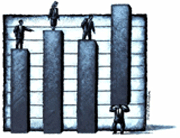
Q&A: The conundrum of private placement discounts
A paper published a dozen years ago by finance professors Michael Hertzel and Richard L. Smith is still causing a stir among valuation practitioners and tax officials. "Market Discounts and Shareholder Gains for Placing Equity Privately" published in the Journal of Finance in 1993, challenged the notion that private placement discounts can be uniformly applied as marketability discounts in valuing closely-held firms. In a finding somewhat tangential to the thesis of the paper, Hertzel and Smith discovered that private placement discounts vary widely, depending on circumstances. Their tables are often used in cases where disagreements develop over the value of privately held firms. Hertzel has recently completed another study on private placements that is likely to add more fuel to the fire.






